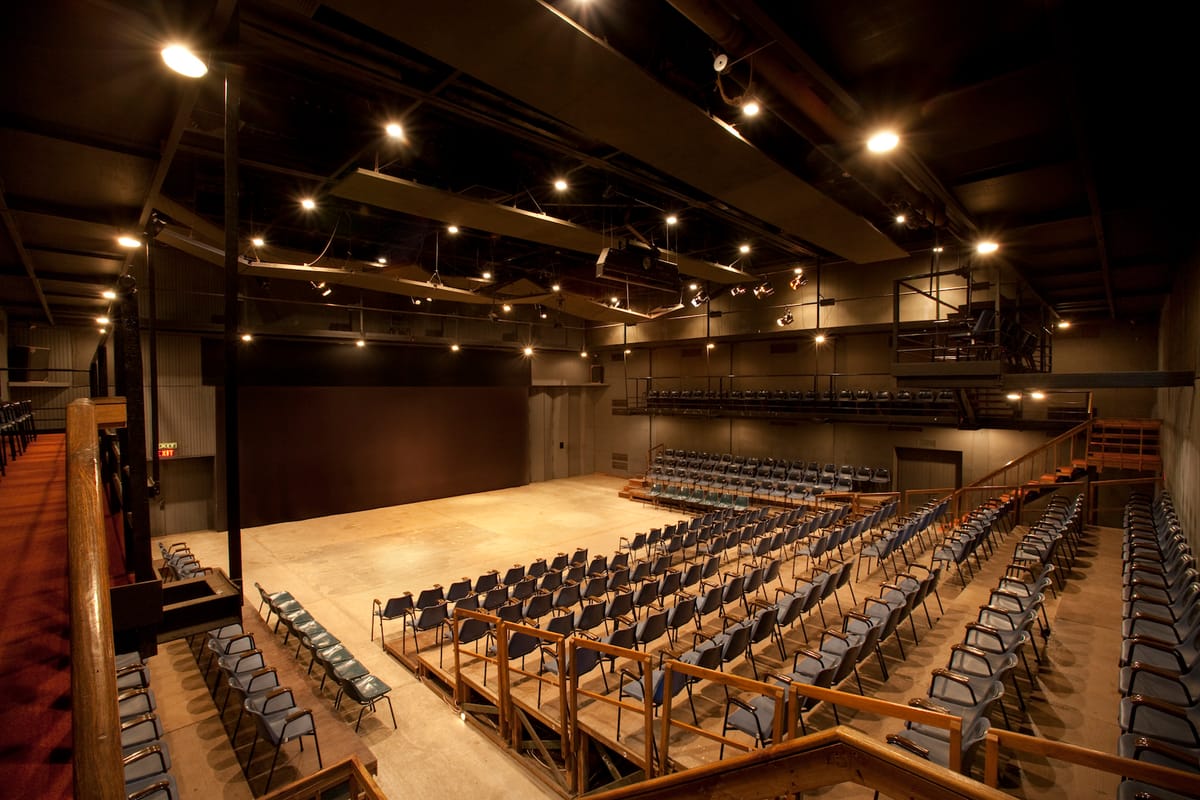The Performer’s Lab

On the birth of the NCPA’s Experimental Theatre
The Tata Iron and Steel Company, in commemoration of its Platinum Jubilee, presented to the NCPA India’s first Theatre for Experimentation in Drama (also known as The Experimental Theatre). The theatre was formally inaugurated by Russi Mody on 25th April, 1986 as Chairman and Managing Director of the Tata Iron and Steel Company. He remarked that few cities in the world could boast of a Theatre for Experimentation in Drama and that Bombay was fortunate to have such a facility.
The 300-seater Experimental Theatre is designed to give the fullest scope for experimentation. It is an air-conditioned, acoustically treated auditorium with a floor area of over 3300 square feet, and a height of 33 feet. Its seating and performing area units are made up of modules which can easily be placed in different ways to create variable arrangements and capacities. The seating and staging units are predesigned and prefabricated so as to make it easy to have them moved or packed or stored away. Thus, it is possible to stage any type of performance, from the conventional “proscenium type” to one requiring complex, asymmetrical and off-beat arena settings. A ceiling grid-frame and a cat-walk system provide total flexibility for modularised lighting and prop facilities and provide an incentive for innovation. On three sides, additional balconies with 50 seats have been provided at a height of 13 feet. These seats offer an interesting view of the area below.
On the occasion of the theatre’s formal inauguration, Tarantula Tanzi (directed by Alyque Padamsee), a play about the new emerging woman, set in a wrestling ring, was performed. The first production scheduled in the theatre after its inauguration was Pralaya, a Marathi adaptation by Satish Alekar of the German play The Flood by Günter Grass.
It is hoped that this theatre, utilised for workshops, readings, lecture-demonstrations and performances will become a laboratory where practitioners in drama can co-operate with musicians, dancers, film directors, photographers, painters and sculptors to hammer out new concepts and meet fresh challenges. Certain kinds of music and dance recitals and folk presentations, more suited to an intimate atmosphere of appreciation, also find a place in the programmes scheduled for this theatre. The Experimental Theatre will also encourage inter-media cultural events and act as a seeding bed for new forms of cultural communication in what is possibly, the beginning of a Renaissance in theatre and the allied arts.
This piece was originally published by the National Centre for the Performing Arts, Mumbai, in the September 2019 issue of ON Stage – their monthly arts magazine.






